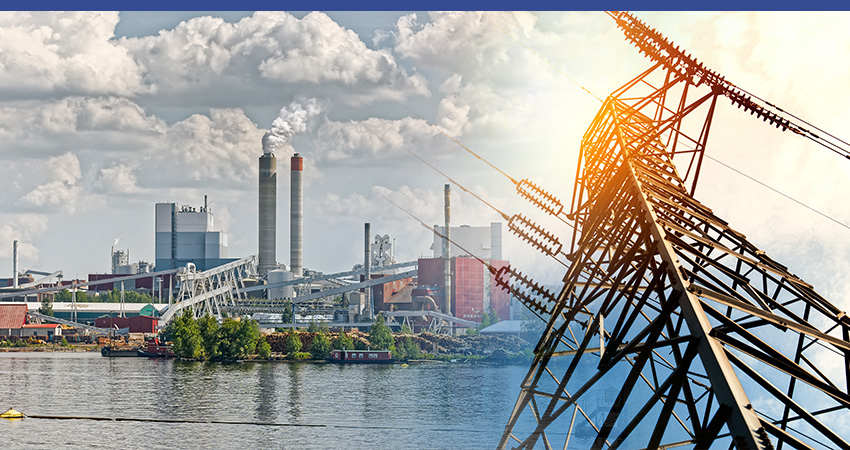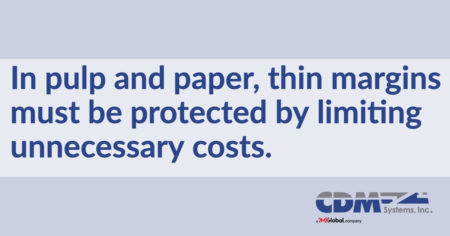How Pulp and Paper Plants Can Have Energy Independence
Independence is a wonderful feeling.
In business, it’s a cost-effective strategy to keep matters in your own hands. Control what you can control. This is especially true when you have the power to provide the energy that your company runs on. Imposed costs from outside sources can cause serious headaches.
For a pulp and paper plant, the use of hog fuel to help generate power is a great source of self-sufficiency. By burning the otherwise useless wood waste to create steam to power the plant, it removes unnecessary dependence on outside fuel sources.
In a commodity-driven industry like pulp and paper, thin margins must be protected by limiting unnecessary costs as much as possible.
Natural Gas Should Only Be a Safety Net 
Natural gas is fine if it’s viewed as a safety net for paper plants walking the tight rope of thin margins. It’s nice to know it’s there if there’s a problem with the hog fuel boiler, but it’s better to not have to use it in the first place.
While things may currently look bright in the natural gas industry – the price has dipped slightly since the start of the year – it has historically been unstable. For a plant with thin margins, dependence on fuel with price volatility is a recipe for disaster.
The natural gas industry has shown massive price increases following periods of decline. The Henry Hub natural gas price went from closing 2011 at $2.98 per million BTU to skyrocketing to $4.31 two years later. More drastic, it went from $2.28 in 2015 to $3.71 the following year – a price hike of around 63%.
Any unnecessary dependence on outside natural gas can eliminate the profits that could be used to fund equipment updates, research and development or, more critically, a plant’s survival.
Pulp and Paper Plants: Friend of the Environment
Not only will having the infrastructure to properly generate energy independently help a plant financially, it gives a facility the social cache to boast it is doing its part to help the environment.
According to Nielsen, 81 percent of consumers globally said they feel strongly that companies have an obligation to help the environment. For good reason, too. The World Health Organization (WHO) estimates that nearly 13 million people die per year from environmental health risks.
While there are positives to natural gas – it’s abundant and relatively cheaper and cleaner than other fuel sources – there are also many downsides.
Not only is it not renewable, but natural gas is also a highly prevalent greenhouse gas. This can make it more destructible than carbon dioxide. According to the Environmental Protection Agency, the impact of methane on climate change can be 25 times greater than carbon dioxide over a 100-year period and around 84 times stronger over a span of two decades.
Touting a limited footprint on climate change can be a powerful public relations move for a plant.
Depending on Yourself
All these benefits can be possible for a plant if it has the infrastructure in place to rely on hog fuel to pump life into the facility. It’s important that a hog fuel boiler is up-to-date and functional. It’s also essential to make sure the conveyor systems leading the hog fuel into the boiler and carrying the ash out of it are reliable.
A plant may not have the luxury of absorbing the costs of a broken or unreliable conveyor system. These costs come from getting the equipment fixed and the unnecessary use of natural gas.
In the pulp and paper business, get equipment you can depend on. That way, you can depend on yourself.
———
About CDM
The CDM story is about recognizing every industrial operation is different, as are their conveying challenges. A custom-engineered conveying system is a cost-effective approach to any operation willing to look at the value of having a partner who is vested in your success and one who stands by their product. CDM has earned more than 91 percent repeat business because we’re more than just a conveying systems manufacturer – we’re a business partner.
For further information contact:
Andrew Parker, President CDM Systems, Inc.
Browse By Benefit
Categories
- Blog (40)
- Case Studies (9)
- News (7)
- Product Information (7)
- Tech Briefs (3)
- Technical Documents (33)
- Uncategorized (1)
- Videos (12)
- White Papers (5)



